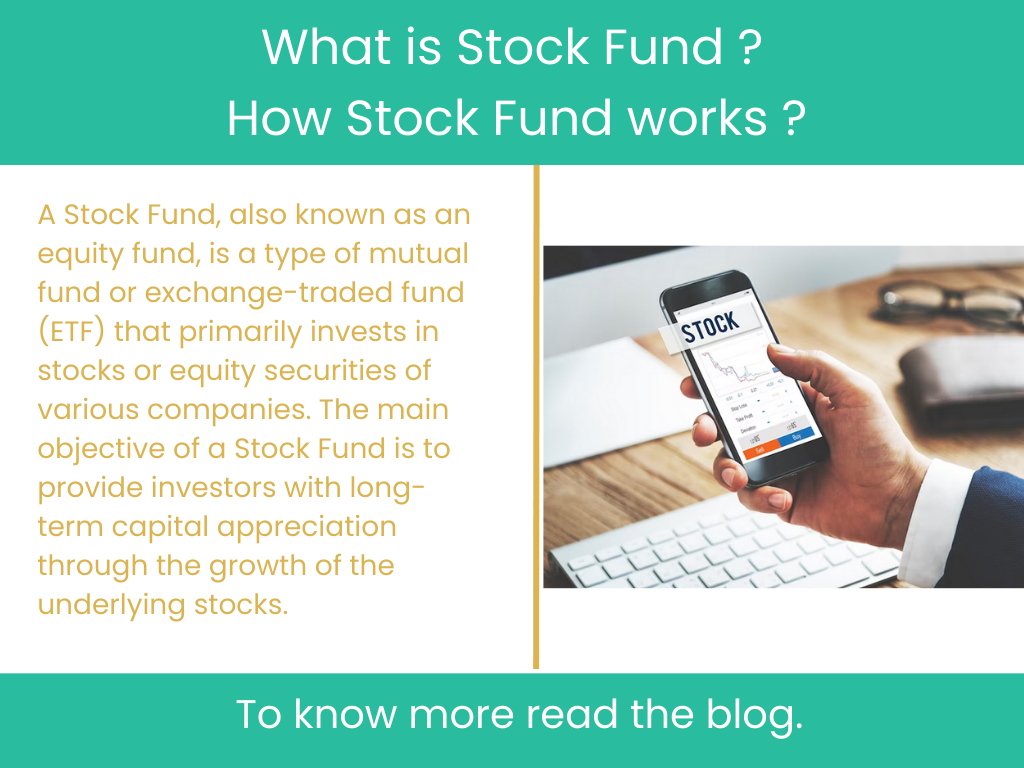What is Stock Fund ? How Stock Fund works ?
A Stock Fund, also known as an equity fund, is a type of mutual fund or exchange-traded fund (ETF) that primarily invests in stocks or equity securities of various companies. The main objective of a Stock Fund is to provide investors with long-term capital appreciation through the growth of the underlying stocks.
Here's how a typical Stock Fund works:
Portfolio Construction: The fund manager selects a mix of stocks from various companies across different industries and sectors. The portfolio may be diversified across large-cap, mid-cap, and small-cap stocks, as well as domestic and international stocks. The goal is to create a well-balanced portfolio that aims to generate capital appreciation.
Research and Analysis: The fund manager and their team perform in-depth research and analysis to identify stocks with growth potential or undervalued stocks that they believe will outperform the market. They consider various factors such as the company's financial health, earnings growth potential, competitive position, management quality, and industry trends.
Buying and Selling: Based on their research, the fund manager buys stocks that they believe have the potential to deliver superior returns. The fund manager may also sell stocks if they no longer meet the fund's investment criteria or if there are changes in the company's fundamentals.
Capital Appreciation: The value of the Stock Fund is primarily driven by the capital appreciation of the stocks held in the portfolio. If the share prices of the underlying stocks increase, the value of the fund's holdings rises, potentially resulting in higher returns for investors. However, it's important to note that stock prices can also decrease, leading to potential losses.
Dividends: Some of the companies in the fund's portfolio may distribute a portion of their profits to shareholders in the form of dividends. The Stock Fund collects these dividends and can either reinvest them back into the fund or distribute them to investors as dividend payments, similar to Dividend Yield Funds.
Stock Funds are chosen by investors seeking long-term growth and higher potential returns. However, they also carry higher risk compared to bond or money market funds. The value of stocks can be volatile and subject to market fluctuations, economic conditions, and company-specific risks. It's important for investors to carefully evaluate the investment strategy, historical performance, expense ratios, and the track record of the fund manager before investing in a Stock Fund.


